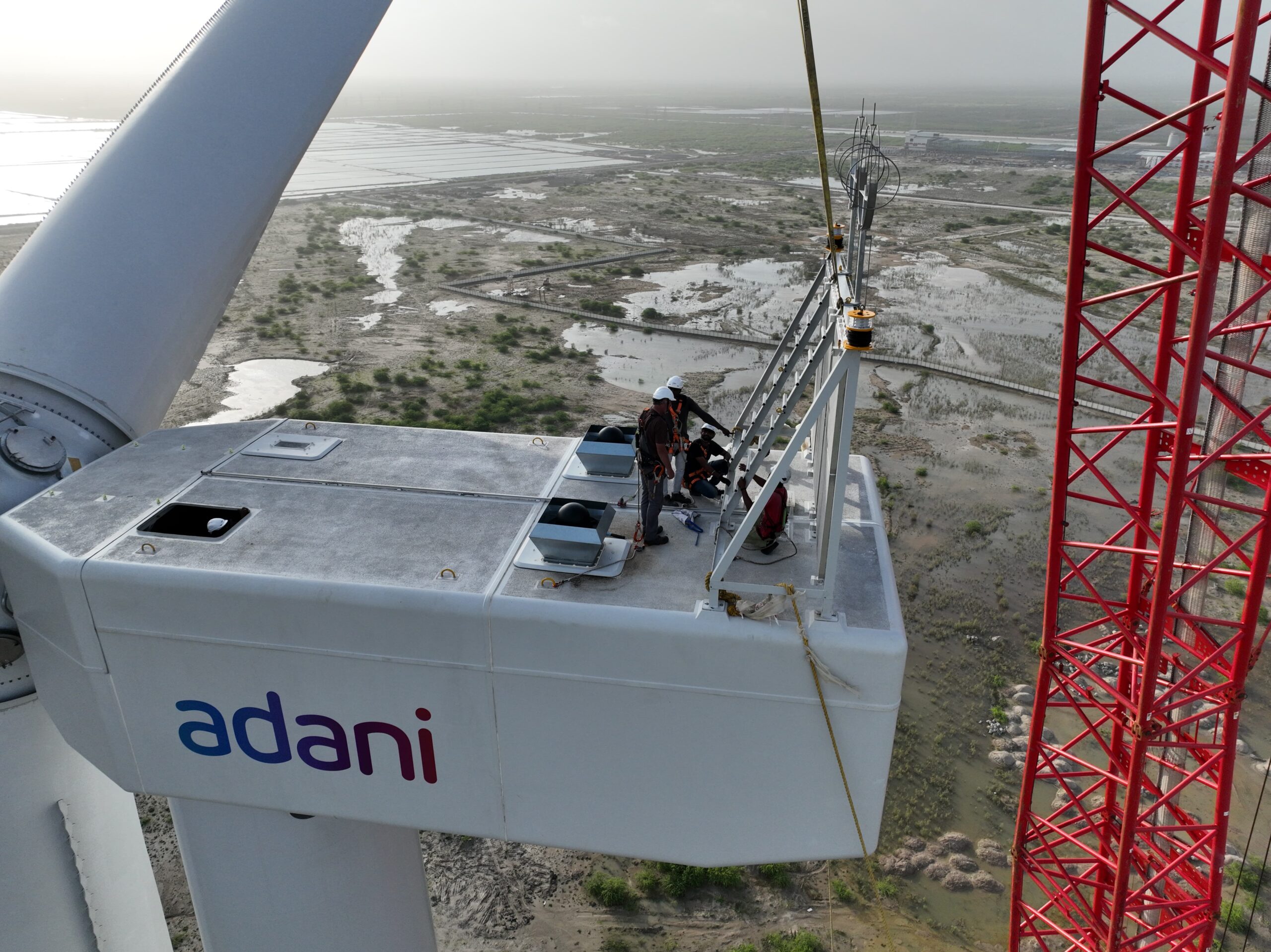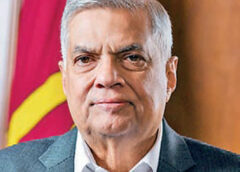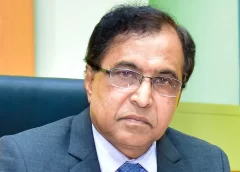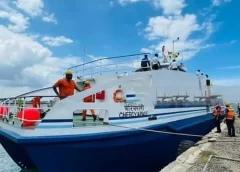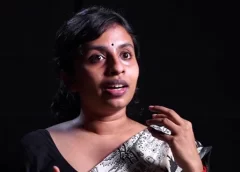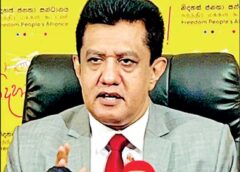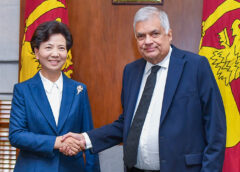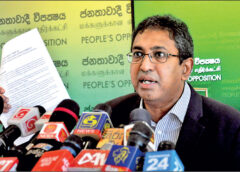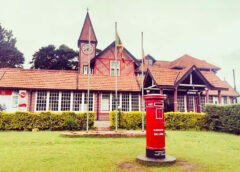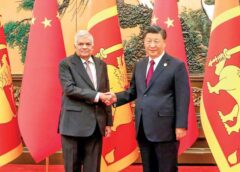Petitioners seek SC intervention against Mannar Wind Power Project citing public interest The Bishop of the Diocese of Mannar and three prominent environmentalists this week petitioned the Supreme Court in the public interest against the proposed 250 MW Mannar Wind Power Project by Adani Green Energy. Rev. Dr. Fidelis Lionel Emmanuel Fernando along with Rohan Pethiyagoda, Prof. Nimal Gunatilleke and Prof. Sarath Kotagama have challenged the procurement process and proposed construction of the project by Adani Green Energy PTE Ltd and/or Adani Green Energy S L Limited. The case names…
Read MoreCategory: News
Hypocrites as democrats
Hypocrites as democrats Thursday 30th May, 2024 Opposition politicians and some of their government counterparts have taken up the cudgels for the people’s franchise following UNP General Secretary Palitha Range Bandara’s call for postponing the next presidential and parliamentary polls by two years. They say they are ready to do all it takes to prevent the postponement of elections. Bandara’s proposal could be considered a trial balloon floated at the behest of the UNP leadership. However, it is doubtful whether the UNP will dare make an attempt to postpone…
Read MoreEC writes to Prez Secy. on LG polls
EC writes to Prez Secy. on LG polls Says holding polls the answer, not community advisory comms., to oversee LG dev. projects SJB backs same & warns of legal action The Election Commission (EC) has informed President’s Secretary Saman Ekanayake and the other relevant authorities that it is better to hold the Local Government (LG) elections than establishing community advisory committees to oversee development projects under LG bodies. The Government recently announced plans to establish these committees, with the alleged intent of having them oversee development projects within LG bodies.…
Read MoreIndo-SL passenger ferry service to resume mid-May
Indo-SL passenger ferry service to resume mid-May The passenger ferry service between Nagapattinam, India, and Kankesanthurai (KKS) in Sri Lanka, which resumed in October of last year (2023) after almost 40 years, only to be stopped days later, is set to recommence on 13 May. Online ticket sales for the service, which will be handled by a new operator, will go live on 6 May. On 14 October 2023, Prime Minister Narendra Modi virtually flagged off the service between Nagapattinam and KKS. The high speed craft Cheriyapani operated by the…
Read MoreThe ‘due process’ clash of the law
The ‘due process’ clash of the law 03 May 2024 | BY Buddhika Samaraweera Private/unofficial bar lawyers & the Public Security Min. exchange salvos over the ‘Yukthiya’s’ ‘wayward’ ‘mission’ In a landscape fraught with tension, a clash has emerged between the Public Security Minister Tiran Alles and the Bar Association of Sri Lanka (BASL) over the controversial ‘Yukthiya’ (Justice) anti-drug and anti-organised crime operation. The BASL contends that the said operation has veered off course, with due legal procedures often disregarded, while Minister Alles refutes these claims, accusing the BASL…
Read MoreCharitha warns of impending constitutional crisis
Charitha warns of impending constitutional crisis Accuses President of treating Constitutional Council as an agency under his authority Emphasises necessity for an extensive discussion on issue within Sri Lankan society Says action of Govt. could lead to a crisis in governance and it must be stopped Freedom People’s Congress (FPC) member and parliamentarian Prof. Charitha Herath issued a warning yesterday, expressing concern about an impending constitutional crisis in the country. The MP said that in each constitutional amendment since the 17th amendment to the constitution, there has been deliberation on…
Read MoreSri Lanka ready to join BRI phase two, China FTA to be expedited
Sri Lanka ready to join BRI phase two, China FTA to be expedited ECONOMYNEXT – Sri Lanka is among countries ready to join the second phase of China’s Belt & Road Initiative (BRI), with a free trade agreement (FTA) between the two countries to be also expedited, according to a discussion between President Ranil Wickremesinghe and a top Chinese official. Wickremesinghe told visiting special envoy of the Chinese President, state councillor Shen Yiqin, that the BRI is expected to make a more substantial economic contribution, according to a statement from…
Read MoreHarsha exposes flaws in 2024 Budget in hard hitting critique
Harsha exposes flaws in 2024 Budget in hard hitting critique Alleges blatant violation of the Fiscal Management Responsibility Act in Budget 2024, with Budget deficit exceeding 5% Says staggering increase in poverty affecting 3 to 7 million people, highlighting a critical issue overlooked in Budget Critiques Govt.’s “Oxymoron” economic approach and absence of a comprehensive plan for making Sri Lanka an advanced economy by 2048 Says tax burden is excessively high, risking a decline in consumption, business failures, and an exodus of professionals Reveals 18% VAT items list; calls it…
Read MoreEx-Tourism Chief recommends preserving historic Nuwara Eliya Post Office
Ex-Tourism Chief recommends preserving historic Nuwara Eliya Post Office Former Sri Lanka Tourism Chairperson Kimarli Fernando suggested yesterday to consider switching the President’s Nuwara Eliya residence into a hotel as an option if demand arises for additional accommodation. She voiced her concerns over the Government’s decision to convert the historic Nuwara Eliya Post Office into a hotel, acknowledging the ‘excess’ room capacity in upcountry city. “Nuwara Eliya currently has excess room capacity. Should there be a need for more rooms, converting the President’s Nuwara Eliya house, to a hotel, could…
Read MoreChina renews support for Sri Lanka
China renews support for Sri Lanka President Wickremesinghe finally meets Chinese counterpart Xi Jinping in Beijing Xi assures China will continue to provide assistance to Sri Lanka without any political strings attached Says China and Sri Lanka should strengthen collaboration on international and regional affairs, oppose politicisation of the human rights issue and bloc confrontation, and safeguard the common interests of developing countries Expresses China’s willingness to import more quality and specialty products from Sri Lanka and encourage Chinese enterprises to invest and do business in Sri Lanka Says China…
Read More